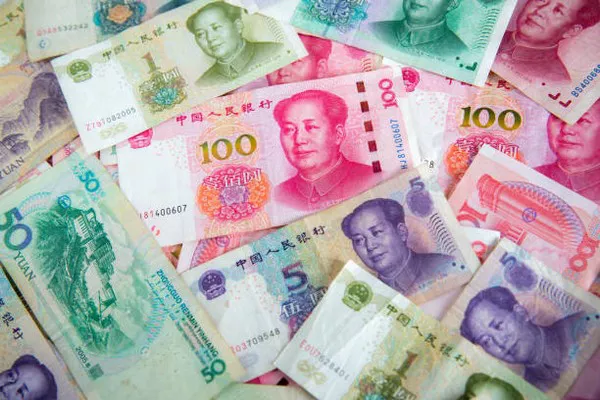In the dynamic landscape of global finance, fluctuations in currency values can significantly impact investment decisions. For investors navigating a market characterized by a weak yuan, strategic considerations become paramount. In this article, we delve into the nuances of investing amidst a depreciating yuan, exploring potential opportunities and risks across various asset classes.
Understanding the Weak Yuan Phenomenon
Before delving into investment strategies, it’s crucial to grasp the underlying factors contributing to the depreciation of the yuan. Several dynamics can influence a currency’s strength or weakness, including economic fundamentals, trade imbalances, geopolitical tensions, and monetary policy decisions.
In the case of the yuan, its weakness may stem from several factors:
Economic Slowdown: A sluggish Chinese economy can weigh on the yuan’s value, as investors anticipate reduced growth prospects and potential capital outflows.
Trade Tensions: Escalating trade disputes between China and major trading partners, particularly the United States, can exert downward pressure on the yuan as market participants factor in the possibility of tariffs and reduced trade flows.
Monetary Policy Adjustments: Central bank interventions aimed at stimulating economic growth or managing inflation can impact the yuan’s value, especially if they involve interest rate cuts or quantitative easing measures.
Market Sentiment: Investor sentiment plays a significant role in currency movements. Negative perceptions about China’s economic prospects or concerns about political stability can lead to capital flight and yuan depreciation.
Investment Strategies in a Weak Yuan Environment
Given the complex interplay of factors influencing currency movements, investors must adopt a nuanced approach to capitalize on opportunities while mitigating risks. Here are several investment strategies to consider:
Diversification Across Currencies: In a weak yuan environment, diversifying currency exposure can provide a hedge against further depreciation. Investing in assets denominated in currencies with stronger fundamentals, such as the US dollar, euro, or Japanese yen, can help mitigate losses stemming from yuan weakness.
Focus on Hard Assets: Tangible assets like gold, real estate, and commodities often serve as safe havens during periods of currency depreciation. Gold, in particular, has historically retained its value during times of economic uncertainty and currency devaluation, making it an attractive option for investors seeking to preserve wealth.
International Equities: Investing in multinational companies with diversified revenue streams can offer exposure to global growth trends while reducing reliance on a single currency. Companies that derive a significant portion of their earnings from regions with stronger currencies may outperform their domestic counterparts in a weak yuan environment.
Yuan-Hedged Investments: For investors seeking exposure to Chinese assets while mitigating currency risk, yuan-hedged investment products such as currency-hedged exchange-traded funds (ETFs) or currency futures can be viable options. These instruments aim to neutralize the impact of yuan depreciation on investment returns, allowing investors to focus on underlying asset performance.
Fixed-Income Securities: Government bonds denominated in currencies with stronger fundamentals, such as US Treasury bonds or German bunds, can provide stable returns and capital preservation in a weak yuan environment. Additionally, high-quality corporate bonds issued by multinational companies may offer attractive yields while reducing currency risk.
Emerging Markets Exposure: While investing in emerging markets carries inherent risks, exposure to economies with robust growth potential can offer diversification benefits and mitigate the impact of yuan depreciation. However, investors should conduct thorough due diligence to assess political stability, economic fundamentals, and currency outlook before allocating capital to emerging market assets.
Cryptocurrencies: For investors with a higher risk tolerance, cryptocurrencies like Bitcoin and Ethereum offer an alternative store of value and potential hedge against currency depreciation. However, it’s essential to recognize the speculative nature of cryptocurrencies and exercise caution when investing in this asset class.
Risk Considerations and Mitigation Strategies
While exploring investment opportunities in a weak yuan environment, it’s crucial for investors to remain cognizant of potential risks and implement appropriate risk mitigation strategies:
Currency Risk: Fluctuations in exchange rates can impact the value of international investments. Employing currency hedging techniques or diversifying currency exposure can help mitigate this risk.
Economic and Political Uncertainty: Geopolitical tensions, policy changes, and economic instability can disrupt financial markets and affect investment performance. Conducting thorough research and staying informed about macroeconomic developments are essential for navigating uncertain environments.
Liquidity Risk: Investments in illiquid assets or markets can pose challenges during periods of market stress. Maintaining a balanced portfolio with sufficient liquidity and diversification can help mitigate liquidity risk.
Credit Risk: Investing in fixed-income securities entails the risk of default by the issuer. Performing credit analysis and investing in high-quality bonds can help mitigate credit risk exposure.
Regulatory Risk: Regulatory changes in domestic or foreign jurisdictions can impact investment returns and market dynamics. Staying abreast of regulatory developments and their potential implications for investment portfolios is essential for risk management.
Conclusion
Investing in a weak yuan environment requires a comprehensive understanding of the factors driving currency movements, as well as strategic foresight and risk management capabilities. By diversifying across asset classes, currencies, and geographic regions, investors can capitalize on opportunities while mitigating risks associated with yuan depreciation. However, it’s essential to remain vigilant, adapt to changing market conditions, and seek professional advice when necessary to navigate the complexities of global financial markets successfully.


